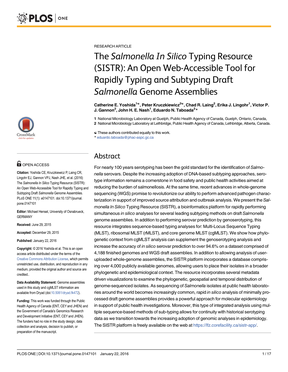In the dynamic world of higher education, standardized tests, such as the ACT or SAT, remain a crucial component of the college admissions process. For academics guiding students through this phase, understanding these exams, whether it’s the ACT or SAT, is essential. This guide to college explores the current landscape of college entrance exams, offering insights to help students succeed.
The Evolution of College Entrance Exams
Standardized testing in college admissions admissions has a long history, with the College Entrance Examination Board establishing the first tests in 1901. Today, the SAT and ACT dominate the field, but recent years have seen significant changes, including the rise of test-optional policies and digital testing formats.
Decoding the SAT
The SAT consists of two main sections: Evidence-Based Reading and Writing, and Math. Each section is scored on a scale of 200-800, with a total possible SAT score of 400-1600. The SAT uses rights-only scoring, with no penalty for wrong answers.
In 2024, the College Board transitioned to a fully digital SAT, bringing several key updates, which impact how students take the SAT.
- Shorter test length (about 2 hours)
- Adaptive testing
- Faster score reporting

Understanding the ACT
The ACT comprises four mandatory sections: English, Math, Reading, and Science, plus an optional Writing section, and students should aim to achieve a high ACT score. Each section is scored on a scale of 1-36, with the composite score being an average of the four main section scores.
Key differences from the SAT include:
- Inclusion of a Science section
- Calculator use throughout the Math section
- Generally more straightforward questions but tighter time constraints
Subject-Specific Assessments: AP Exams
While SAT Subject Tests were discontinued in 2021, Advanced Placement (AP) exams continue to play a crucial role in demonstrating subject mastery and potentially earning college credit during junior year. AP exams cover a wide range of subjects and can strengthen a student’s college application.
The Rise of Test-Optional Policies
Test-optional policies allow students to decide whether to submit standardized test scores. This trend has gained momentum, particularly in response to concerns about equity and access in higher education, which is critical for students considering taking the ACT or SAT.
Pros of test-optional policies:
- Reduces stress and financial burden
- Allows for a more holistic application
Cons:
- May create uncertainty in application evaluation
- Could disadvantage strong test-takers
When deciding whether to submit scores, students should consider their scores in relation to the college’s middle 50% range and the strength of other parts of their application.
Crafting an Effective Test Preparation Strategy
A successful study plan should:
- Start early (3-6 months before the test date) to prepare effectively for either the ACT or SAT.
- Identify areas of strength and weakness to optimize performance on one test, either the ACT or SAT.
- Set realistic goals and milestones
Students should leverage practice tests and online resources, including official materials from the College Board and ACT, as part of their test prep. Some may benefit from structured courses or one-on-one tutoring.

Mastering Test Day Performance
Effective strategies include preparing early and understanding whether colleges and universities require standardized test scores.
- Time management techniques
- Anxiety management through relaxation and positive thinking is crucial when students take the test, be it the ACT or SAT.
- Proper preparation (bringing necessary items and getting adequate rest) is essential when students take the test.
Beyond Scores: The Holistic Admissions Approach
While test scores are important, colleges also consider:
- High school GPA and course rigor
- Extracurricular activities and leadership roles
- Personal essays and letters of recommendation
- Demonstrated interest in the college
Admissions officers look for well-rounded applicants, seeking a balance between strong test scores and meaningful extracurricular involvement, in addition to considering senior year achievements.
The Future of College Admissions Testing
Current discussions in the field include:
- The role of artificial intelligence in test preparation and administration
- The impact of test-optional policies on admissions equity in four-year colleges
- The potential for more subject-specific or skills-based assessments
Some proposed alternatives to traditional standardized tests include portfolio-based admissions, school-specific entrance exams, and competency-based assessments, which may be considered by colleges and universities.
Navigating Test Choices and College Goals
Students should consider which test (SAT or ACT) aligns better with their strengths, whether AP exams are valued by their target schools, and how their SAT score compares with other applicants. Test choices should reflect a student’s intended major and career goals.

Essential Insights for College-Bound Students
Key takeaways from this ultimate guide to college readiness:
- Start preparing early and create a balanced study plan, ensuring that you are ready to take the SAT or ACT by your junior year.
- Understand the specific requirements of target colleges using this guide to standardized testing.
- Consider test-optional policies and how they align with individual strengths
- Focus on holistic development, balancing test preparation with extracurricular pursuits
- Stay informed about changes in the testing landscape and admissions trends
By approaching college admissions tests strategically, students can maximize their chances of success not just on the exams, but in their overall college application process, especially during their senior year.
For more information on navigating the American college admissions process, and to learn more about what four-year colleges look for when applying to college, visit our dedicated resource pages.
Remember, while standardized tests are important, they are just one component of a student’s academic profile in the American college admissions process. Encourage students to focus on their overall growth, pursuing their passions, and developing skills that will serve them well in colleges and universities, as well as beyond.
Your Path to College Success
As you navigate the complex landscape of college admissions, remember that this journey is about more than just test scores and applications. It’s an opportunity for self-discovery, growth, and preparation for your future. While standardized tests play a role, they don’t define your worth or potential. Approach this process with confidence, knowing that your unique experiences, passions, and perspectives are valuable assets.
Stay focused, but don’t forget to enjoy your high school years. Cultivate resilience, embrace challenges as opportunities to learn, and maintain a balanced lifestyle. Remember, the right college for you is one where you can thrive academically, personally, and socially. Trust in your abilities, seek support when needed, and keep your long-term goals in sight.
Your dedication and hard work will pave the way for an exciting and rewarding college experience. Best of luck on your journey!









